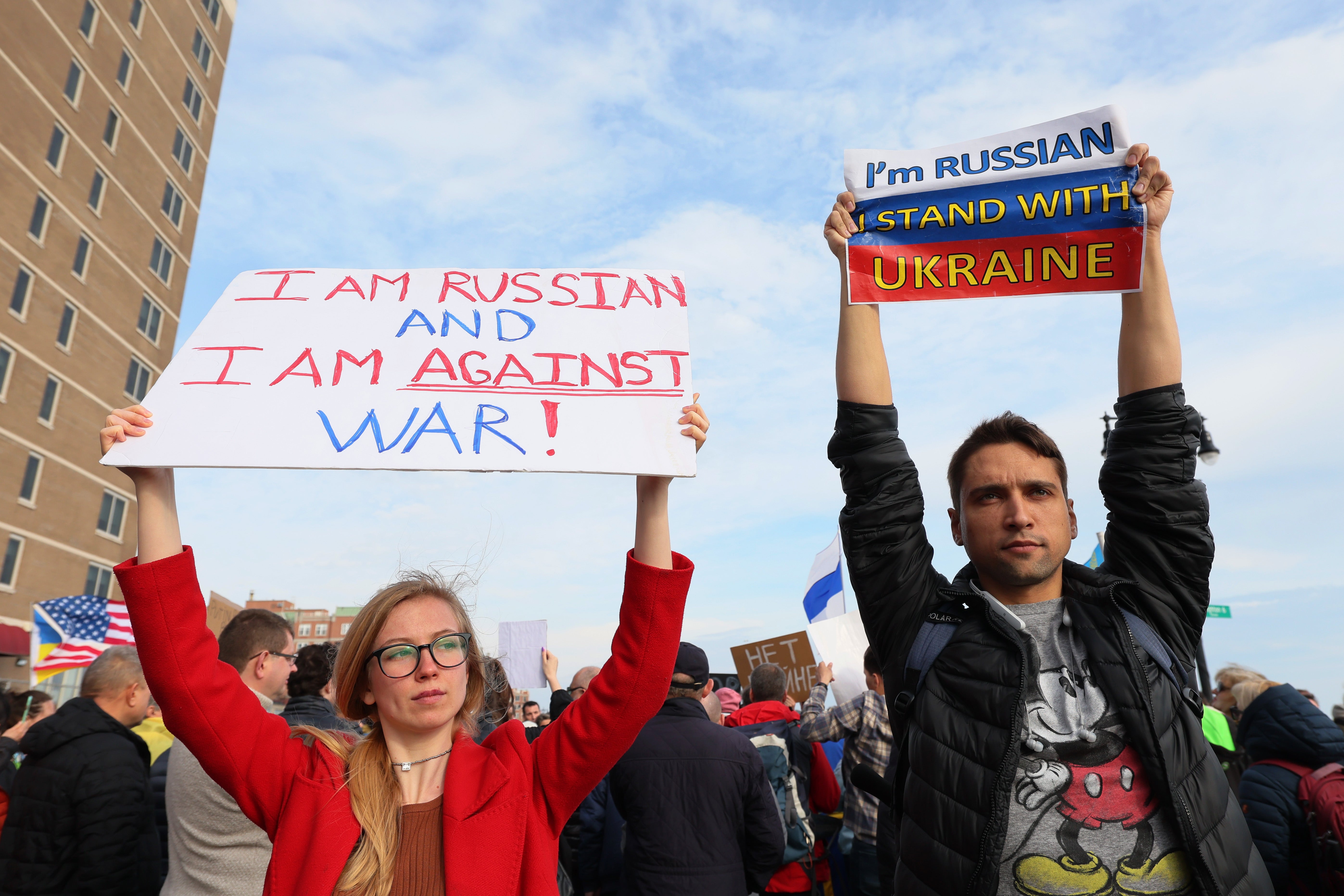As talks begin between Ukraine and Russia, peace won’t be easy
Editorial: As President Zelensky says, all wars end in agreement, but it is also true not all agreements prevent wars

In his address to both houses of US Congress, president Volodymyr Zelensky observed that all wars end in agreement.
So it will prove in Ukraine, and the outlines of a potential agreement have been visible for some time, and long before the unprovoked Russian invasion began. Historians will have the difficult task of assessing precisely why what might have been achieved in peacetime could only come about after so much slaughter and destruction. The impatience of Vladimir Putin will be a significant factor in that as, whatever else can be said, there were infinite opportunities for diplomacy rather than war. President Putin’s paranoid fears about imminent Ukrainian membership of Nato and the EU were just that, and a tragic misunderstanding of reality.
There was never much practical possibility of Ukraine joining Nato or the EU as a full member state. Everyone – in Kyiv, Moscow, Brussels, Washington, across Nato and the EU – knows it, even if they couldn’t say it.
Whatever aspirations were symbolically enshrined in the Ukrainian constitution, such ideas are now having to be revised. Mr Zelensky has a reputation for telling it straight, and he has told his compatriots, in so many words, to forget about Nato for the time being. The “open door” policy of Nato, he says sadly, has not been applied towards Ukraine, which is true.
So that is one area where the Ukrainian and Russian sides were always closer together than either side might care to admit. Now, after the war, Ukraine knows it will be punished by Russia for even dreaming its dreams. According to the Russians, different verbal formulations are now being tested that will balance this essential truth with the dignity of both sides – words that maintain the formalities of the concept of sovereignty with the reality of thermobaric weaponry.
Had the west long ago granted Ukraine its wish to join the alliance, before the loss of Crimea and some eastern oblasts over the past few years, this war would not now be taking place. Ukraine would be whole and free, albeit menaced, just as Estonia and Poland are still independent. But that time is indeed past, and Nato can do little for a Ukraine effectively half-occupied by Russia.
There is much left to discuss, and the sides cannot even agree on how long the talks might take. The Russians would like an agreement in days because their “special military operation” has failed so badly.
Russia also needs the western economic war to be wound down before sanctions hurt too many oligarchs and immiserise too high a proportion of the Russian population. Some Russians may like the idea of “liberating” Ukraine as an abstract aim of policy, but they will also miss their Big Macs and Apple iPhones. Such things could yet bring down the Putin regime.
The Ukrainians, strange to say, have time on their side in these talks, even as they are besieged – a sign of Russian desperation. They do, however, face painful choices. There is the question of whether to live with or even recognise Russian and rebel sovereignty over Crimea and the bogus “people’s republics” in the Donbas. Ukraine has little chance of winning them back even if the war goes well for them, but they are still sovereign territory, illegally taken, unrecognised by the UN.
Perhaps more difficult for Ukraine is giving up the dream of membership of the European Union – just as the European Commission and European parliament accepted and fast-tracked the Ukrainian application. As with Nato, the uncomfortable reality is that Ukraine was always, like Turkey, a problematic candidate country for many EU member states, for good reasons and bad.
Even if words such as “neutral” or “Finlandisation” do not appear in official statements, they will be the reality of political life for Ukraine in the short to medium term. If that, plus the partial dismemberment of the state, is sufficient to satisfy Russia, then the Kremlin might well seize the opportunity to declare victory with a big “victory” parade to follow in Red Square.
To keep up to speed with all the latest opinions and comment sign up to our free weekly Voices newsletter by clicking here
Two problems remain, however, with any agreement that doesn’t restore full Ukrainian territorial integrity and independence. Firstly, Ukrainians, or the majority of them, will not wish to see their country pivot towards Russia economically, politically or culturally, and the suspicions and freshly entrenched hatreds will persist. Indeed, the invasion and its war crimes will leave Ukraine viscerally hostile to Russia for generations, with a permanent grievance about the murder of civilians and the lost territories.
Second, for the whole world, it will feel as though Mr Putin has gained something through the use of force, even if his armies disgraced themselves, and even if it is not much more than he could have gained by doing nothing. Such an agreement as is being discussed now would not deter Mr Putin from invading Moldova, say, or Belarus or Kazakhstan, if their peoples rebelled against their Moscow-approved dictators. Ambitious autocrats around the world will draw the conclusion that war works.
As President Zelensky said, all wars end in agreement; but it is also true not all agreements prevent wars.






Join our commenting forum
Join thought-provoking conversations, follow other Independent readers and see their replies
Comments